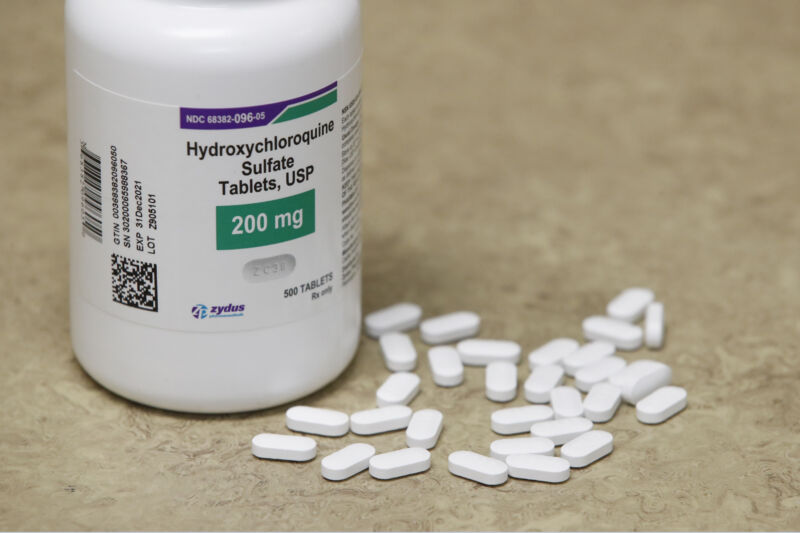
The Lancet medical journal on Thursday announced the retraction of a dubious study suggesting that the anti-malaria drugs chloroquine and hydroxychloroquine significantly increased the risk of death and heart-rhythm complications in hospitalized COVID-19 patients worldwide.
Three of the study’s four authors made the decision to retract the study after they were unable to independently verify the data used for their analysis. The data was provided by an obscure data analytics company, Surgisphere, which is run by the fourth author of the study, Sapan S Desai, who did not appear to agree to the retraction.
The three retracting authors—Mandeep R. Mehra of Harvard, Frank Ruschitzka of University Hospital Zurich, and Amit Patel of the University of Utah—said in their retraction notice that Surgisphere refused to hand over its full dataset and an audit report of its servers for an independent peer review. “Based on this development, we can no longer vouch for the veracity of the primary data sources,” the wrote.
They closed the retractions with an apology:
We all entered this collaboration to contribute in good faith and at a time of great need during the COVID-19 pandemic. We deeply apologise to you, the editors, and the journal readership for any embarrassment or inconvenience that this may have caused.
In a linked statement, The Lancet called for rapid investigation into Surgisphere, saying:
The Lancet takes issues of scientific integrity extremely seriously, and there are many outstanding questions about Surgisphere and the data that were allegedly included in this study. Following guidelines from the Committee on Publication Ethics (COPE) and International Committee of Medical Journal Editors (ICMJE), institutional reviews of Surgisphere’s research collaborations are urgently needed.
The Lancet study gained attention claiming to have detailed data on more than 96,000 COVID-19 patients, harvested from electronic medical records from hospitals on six continents. And analysis of that data was startling: patients who had received either chloroquine or hydroxychloroquine had up to a 45 percent increased risk of dying and up to 411 percent increased risk of serious heart-rhythm problems (known complications of the drugs).
The findings caused regulatory agencies to change their guidance on the use of the drugs and prompted the World Health Organization to pause the use of hydroxychloroquine in its global Solidarity Trial.
But outside experts were quick to raise myriad questions about the quality and accuracy of the obscure data, which Surgisphere refused to share. Media investigations subsequently identified peculiarities in the company’s past work—selling medical textbooks with fake reviews and shuttering a medical journal claimed to be renowned.In a May 29 response to the questions, Surgisphere released a statement on its website saying that it would submit to an independent audit.
Surgisphere did not immediately respond to a request for comment from Ars. This post will be updated with any additional comment provided.
In the meantime, the WHO announced Wednesday that it had resumed its trial of hydroxychloroquine after it reviewed the data and found no problems.
Update: 6/4/2020, 4:30pm ET: A second COVID-19 related study based on Surgisphere data has now been retracted. The study was published in The New England Journal of Medicine and looked at the effect of preexisting use of angiotensin-converting enzyme (ACE) inhibitors and angiotensin-receptor blockers (ARBs) in COVID-19 patients. As in the case of the Lancet study, the authors reported that "Because all the authors were not granted access to the raw data and the raw data could not be made available to a third-party auditor, we are unable to validate the primary data sources underlying our article."
reader comments
407